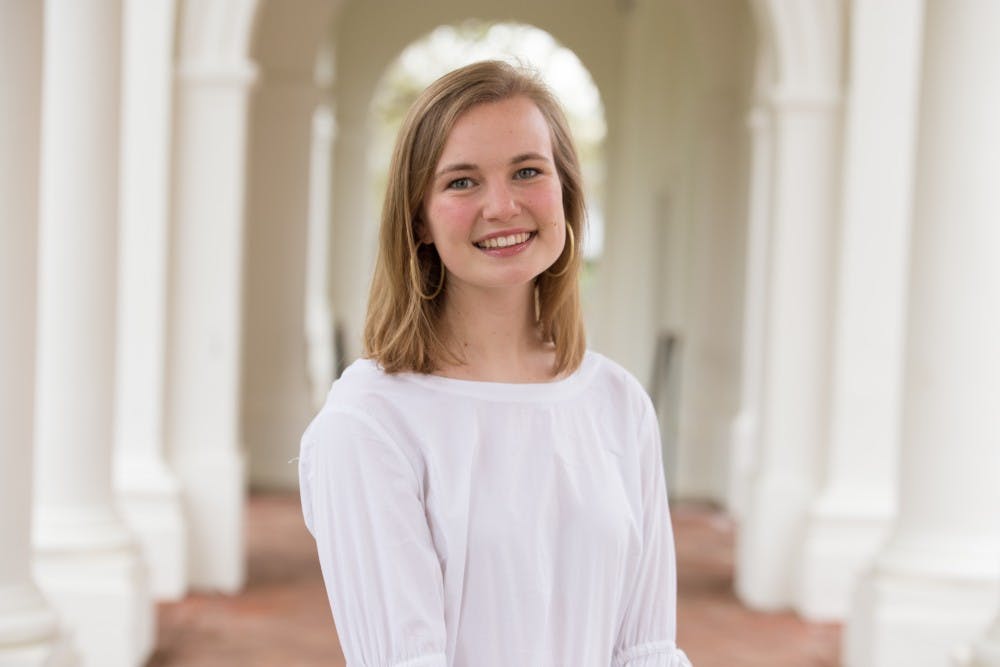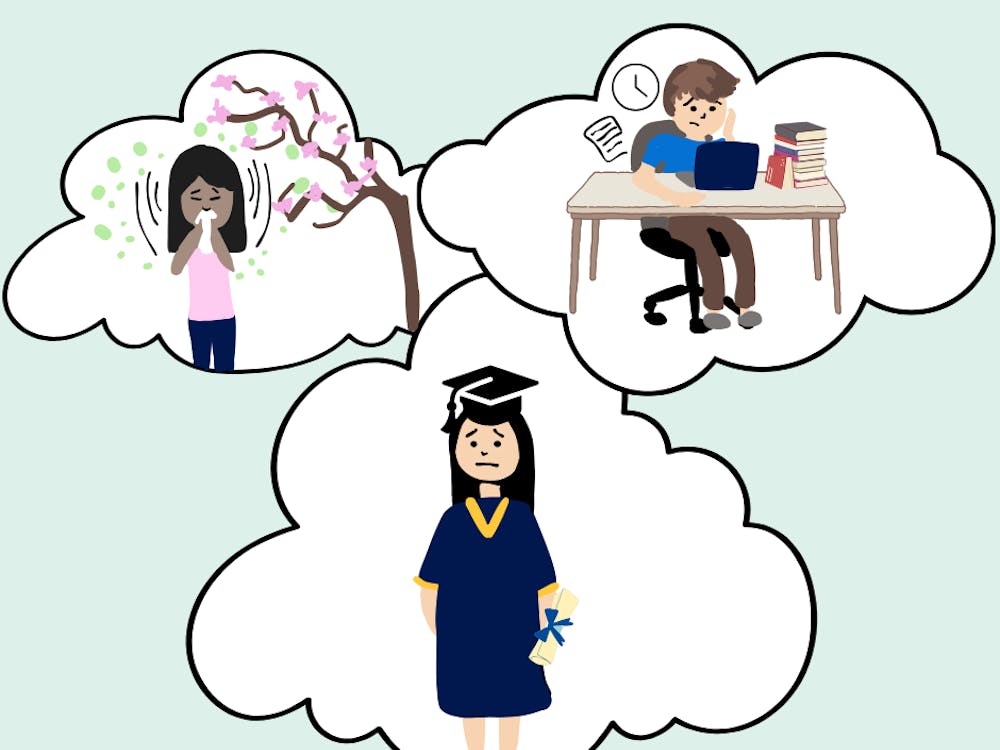Preparing to graduate with an English degree from the University is like starring in your very own season of “The Young and the Restless” — one can anticipate dramatic goodbyes from well-loved classmates and professors, plot twists of last-minute employment and shocking reveals of who will end up where.
But with all joking aside, I can’t think of anything better to describe how I’m feeling as I stand on the brink of my life of enthralling book discussions and look off into the abyss of adult life. If there’s anything my English major has taught me, it is that we are indeed so young, with so much more to learn, do and experience.
And as graduation approaches, I’m restlessly wondering how I will apply the skills I’ve fine-tuned in writing, editing and close reading to my new job in human resources at a bank — wondering how I will navigate this colossal world I’ve been reading of.
What can I do with the 13 English classes worth of literary knowledge I’ve accumulated? Will it go to waste? How will I witness the impact of this major — and the books I’ve read — in my own life?
I think the answers will unfold as I leave Grounds, enter the real world and give my first go at using whatever means of understanding we have in this new adventure of sudden adulthood. But for now, since I’m not sure how I’m going to use my experience as an English major just yet, I am taking comfort in the fact that I can share it with others.
Throughout my academic career, I was given the opportunity to grow immensely through rich discussions, form close relationships with professors and create carefully worded papers used to draw out my many thoughts. However, I believe this all pales in comparison to the ways in which the books I read challenged me — challenged my view of the world, of others and even of myself.
So without further ado, here is one English major’s attempt to create something lasting from her four years — a list of texts that changed and challenged me.
1. “Little Dorrit” by Charles Dickens
Okay, I know you probably didn’t like reading “Great Expectations” in high school, and you’ve solemnly sworn to never pick up another Dickens book again — but trust me, I felt the same before I read this one. This novel lead me to a more complex understanding on how to establish healthy, rather than manipulative, relationships. It showed me to how to look for people who live for freedom and lead others to freedom. “Little Dorrit” also taught me the difference between simply being a supporter and being a leader — something all University students should recognize.
2. “Home” by Toni Morrison
If all you know of the South is “Gone With the Wind,” this book is the antibiotic we all need to save us from the disease of misplaced romanticizing. Morrison takes on eugenics, childhood traumas in the Deep South and the long walk “home” toward healing. It’s beautifully written — so much so that it can break your heart in just over 100 pages. Morrison puts you in places you most likely would not have chosen to go but need to experience.
3. “The Tenant of Wildfell Hall” by Anne Bronte
This is not a trivial story of airy and light 19th-century society. This is a progressive, forward-thinking lecture on feminism, women’s economic rights, alcoholism and toxic masculinity. This book taught me how to make my own choices when deciding whether to act independently or not and how to grapple with and respect the choices of others.
4. “Dear Ijeawele, or A Feminist Manifesto in Fifteen Suggestions” by Chimamanda
Ngozi Adichie
Speaking of feminism, I think this book — written in the form of a long letter — is a sacred text for humanity. As Adichie advises her dear friend on how to raise her daughter, she gets to the heart of so many lies that women hear, accept and live by — lies that, thereafter, keep women’s full abilities and personalities oppressed. This book convinced me that the best place to start changing cultural beliefs about women is with teaching children, especially little girls, not to hide or grow silent. This is a therapeutic read in which you will be told everything you wished your parents had while raising you.
5. “At the Dark End of the Street” by Danielle L. McGuire
Before reading this book, I only understood Rosa Parks in the watered-down elementary school version — a sweet, brave little lady who wouldn’t move. I had no idea she was a kick-butt investigator trying to bring white men to justice for ritualistically assaulting black women. This book links our current #MeToo and Time’s Up movements to civil rights in a way that should not be ignored or sanitized — the links between sex and oppression need to be brought to light everywhere.
I still don’t know the extent of the benefits my English major will provide me after graduation. However, there is one thing I know I will able to use every single day of my life — the empathy these texts have cultivated within me and the way they have shaken me out of complacency. I’m sharing this little list for times of chaos and uncertainty, and any time in between, because I believe we can lead lives of continual transformation long after we leave the University. I hope a book from this list will help you recognize any changes in your own life thus far and, concurrently, help you find new ways to achieve personal growth.
Sarah Ashman is a Life Columnist for The Cavalier Daily. She can be reached at life@cavalierdaily.com.







